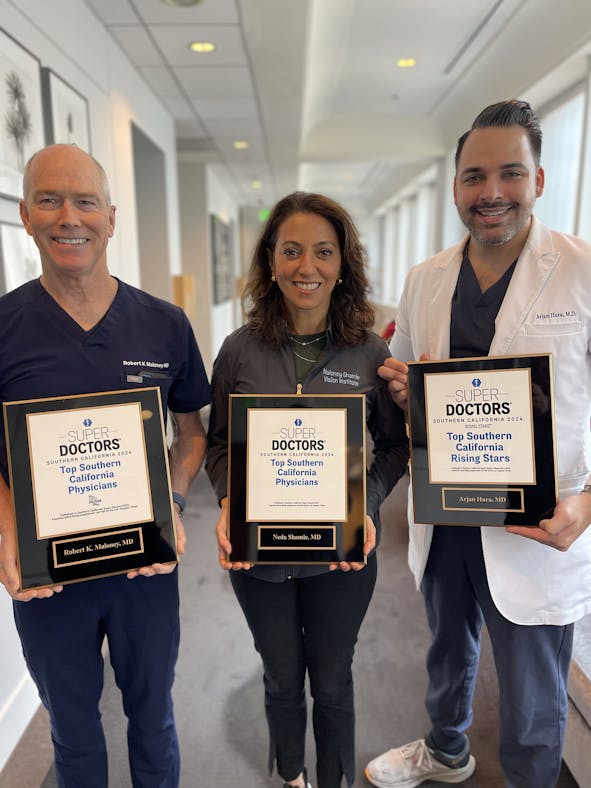IN CLOSING
Today, LASIK vision correction is the most popular refractive surgery performed. Its reputation is well deserved, as people discover that LASIK delivers great vision safely when it is performed by experienced, skilled surgeons. Perhaps more telling than the general public’s enthusiasm for LASIK, however, is the widespread acceptance the procedure has gained among professionals in the fields of ophthalmology and optometry. In fact, more eye doctors have had LASIK on their own eyes than any other group of people.
What does the future hold for people who could benefit from laser vision correction? LASIK is a mature procedure. The wavefront-guided, all-laser technology is excellent. Improvements are happening only very slowly now. For the foreseeable future, LASIK will continue to be the procedure of choice for most people with low and moderate refractive errors.
The great innovations in vision correction surgery over the next decade will occur in lens implants. As I write, we are on the verge of having available an implantable contact lens that corrects nearsightedness as well as astigmatism. Further improvements in implantable lenses will make the procedure easier.
The great unsolved problem is presbyopia. Currently, we treat it with monovision or multifocal or accommodating IOLs. These approaches all work pretty well, but none are perfect. New lenses are in the pipeline for refractive lens exchange that, we hope, could allow a much greater range of clear vision, from miles away to the tip of your nose. Tiny implants for presbyopia are under investigation. These are small bifocal lenses that are placed in the center of the cornea to restore reading vision. We don’t yet know how we’ll solve the issue of presbyopia, but it is an area of active investigation. I predict that by 2030 we’ll eliminate presbyopia as easily as we eliminate nearsightedness, farsightedness, and astigmatism today.
If you’ve read this book, you now know a lot about vision correction surgery. Thank you for joining me on a journey through this field. It is my life’s passion, and I’m honored that you let me share it with you. Vision correction surgery has been a life-changing experience for many, including my family and me. The decision to have surgery is an important one that ultimately only you can make. I hope to have given you information that will help you make a sound decision that will enrich your life and allow you to enjoy the newfound freedom you experience from improved vision.
Resources





